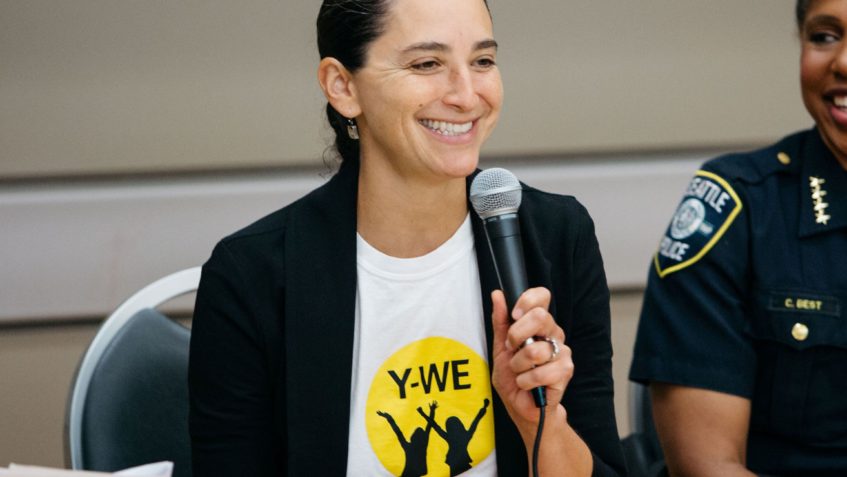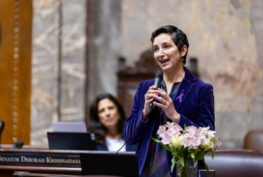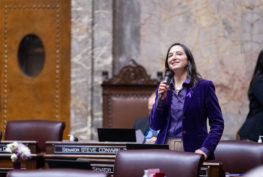Issue 4: Expanding Education and Equity
Dear Neighbors,
This is the fourth issue of my summer e-newsletter series, which gives an overview of some key policies we passed into law this year. This issue focuses on educational systems as well as equity legislation.
Remember, you can also find information about successful bills I sponsored this year in my April 19 Update from Olympia. All the bills discussed there passed and will become law.

Higher Education
House Bill 2158, the Workforce Education Investment Act, brings into reach the possibility of earning a family wage, by making college and apprenticeships accessible. It establishes a dedicated source of funding to allow students whose household earnings fall below 55% of the state’s median family income (approximately $50,000 per year) to study at public colleges tuition-free, and provides for partial tuition scholarships for students whose households earn up to 100% of the median family income (approximately $88,000 for a family of four).
The act also expands the Guided Pathways program at state community colleges and technical schools and will grow high-demand degree programs like nursing, engineering, and computer science.
Additionally, House Bill 1303 improves access to higher education by making it easier for full-time students in certain fields to qualify for state child care benefits.

Funding K-12 Education
After the court found in the McCleary lawsuit that the state was permitting inequitable funding for basic education across different school districts, lawmakers in 2017 raised property taxes to fund school districts more evenly. To limit the cost to taxpayers, the amount districts could raise locally through levies was reduced, but this shift created budget shortfalls in some districts.
This year, the state’s budget increased funding for K-12 education by $4.5 billion dollars over the last biennial budget. At the same time, Senate Bill 5313 increased the amount local districts can raise through voter-approved levies for public education, relieving some — but not all — of the shortfalls in local districts.
Gender Equity in Schools
Senate Bill 5689 requires school districts to adopt policies and procedures that protect transgender students from discrimination, harassment, intimidation and bullying.
House Bill 1577 will help close the gender gap in tech jobs by ensuring that our public schools identify and track how female-identified students are doing in computer science courses in order to identify inequities and successes. This will shed light on what’s working, what isn’t working, and what changes are needed.

Race and Gender Equity Statewide
SB 5356 establishes the Washington State LGBTQ Commission in the Office of the Governor to monitor relevant legislation and state policies to eliminate barriers to economic and health equity for LGBTQ people.
I-1000, an important ballot initiative that voters put before the Legislature, was passed this year. It creates the Governor’s Commission on Diversity, Equity and Inclusion and allows the state to remedy discrimination and underrepresentation of disadvantaged groups with affirmative action policies that do not use quotas and do not constitute preferential treatment.
What I’m up to this month…
9/9 Labor & Commerce Committee CannaBusiness Facility Tour, Renton
9/11 Transportation Committee Tour, Shoreline
9/16 Labor & Commerce Committee Work Session
9/18 Filipino Community Village Groundbreaking
9/19 Joint Transportation Committee Meeting
9/24 National Voter Registration Day Event
9/25 Joint Legislative Audit and Review Committee Meeting
Get More Updates
Follow me on Facebook to get the latest updates on what I’m up to during the interim.
Keep in Touch
Was this newsletter helpful? Did we miss anything? Your participation helps improve our communities!




